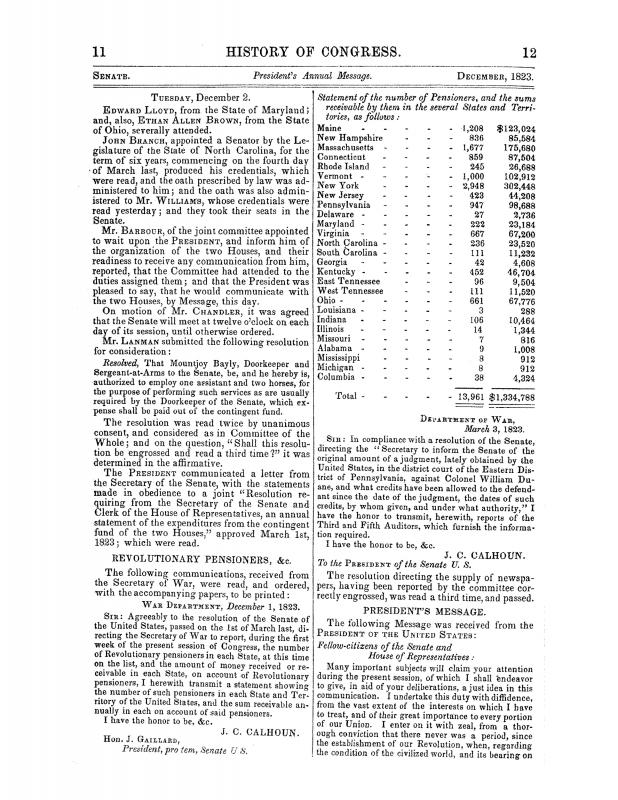The diplomat and writer from Pernambuco [Manoel de] Oliveira Lima (1867–1928) was Brazil’s representative in a number of countries (Portugal, Belgium, Germany, Japan, and the United States), and was also a founding member of the Academia Brasileira de Letras. During the course of his life he built up a considerable collection of books; in fact, the Oliveira Lima Library was established in Washington, DC at his initiative. Two details from his personal life are of interest here as a backdrop to his comments on the famous document issued in 1823, commonly known as “The Monroe Doctrine”: he was considered a staunch “Germanophile” due to his interest in and emphasis on German philosophy, and he even lobbied for Brazilian neutrality during the First World War; he also earned a certain “racist” reputation for his evident opposition to Japanese immigration into his country (1908). He was buried at Mount Olivet (Washington, DC).
In this essay, written expressly for the Third Pan-American Conference in Rio de Janeiro (1906), Oliveira Lima suggests that the conference would be a decisive event for Latin America as a whole. He considered it to be decisive because it would have to choose the “American option” expressed in the Monroe Doctrine or the “Argentinean option” as outlined in the Drago Doctrine. Argentina’s minister of foreign affairs, Luis María Drago, openly challenged the Euro-North American influence implicit in the Monroe Doctrine’s ideology. The answer was made clear in 1904: President Theodore Roosevelt’s corollary underscored “the right” of the Big Stick, with which the United States claimed to be entitled to invade Latin American territories and intervene in the region’s commercial affairs in defense of its interests. Once the United States indicated that it interpreted “Monroe-ism” as a governmental theory for “the exclusive use of the intervening power,” Oliveira Lima expressed his preference for the principles proposed by Argentina: “that Latin American nations can act in the interests of their own destinies and resist (…) any kind of foreign aggression.”
For additional information, see President James Monroe’s Annual Message to the American Congress (1823) [doc. no. 1055512], and the sarcastic response written by the Brazilian monarchist Eduardo Prado seventy years later in his book (which met with a tragic fate) A ilusão americana (1894), written while he was living in exile in London [doc. no. 776328].

